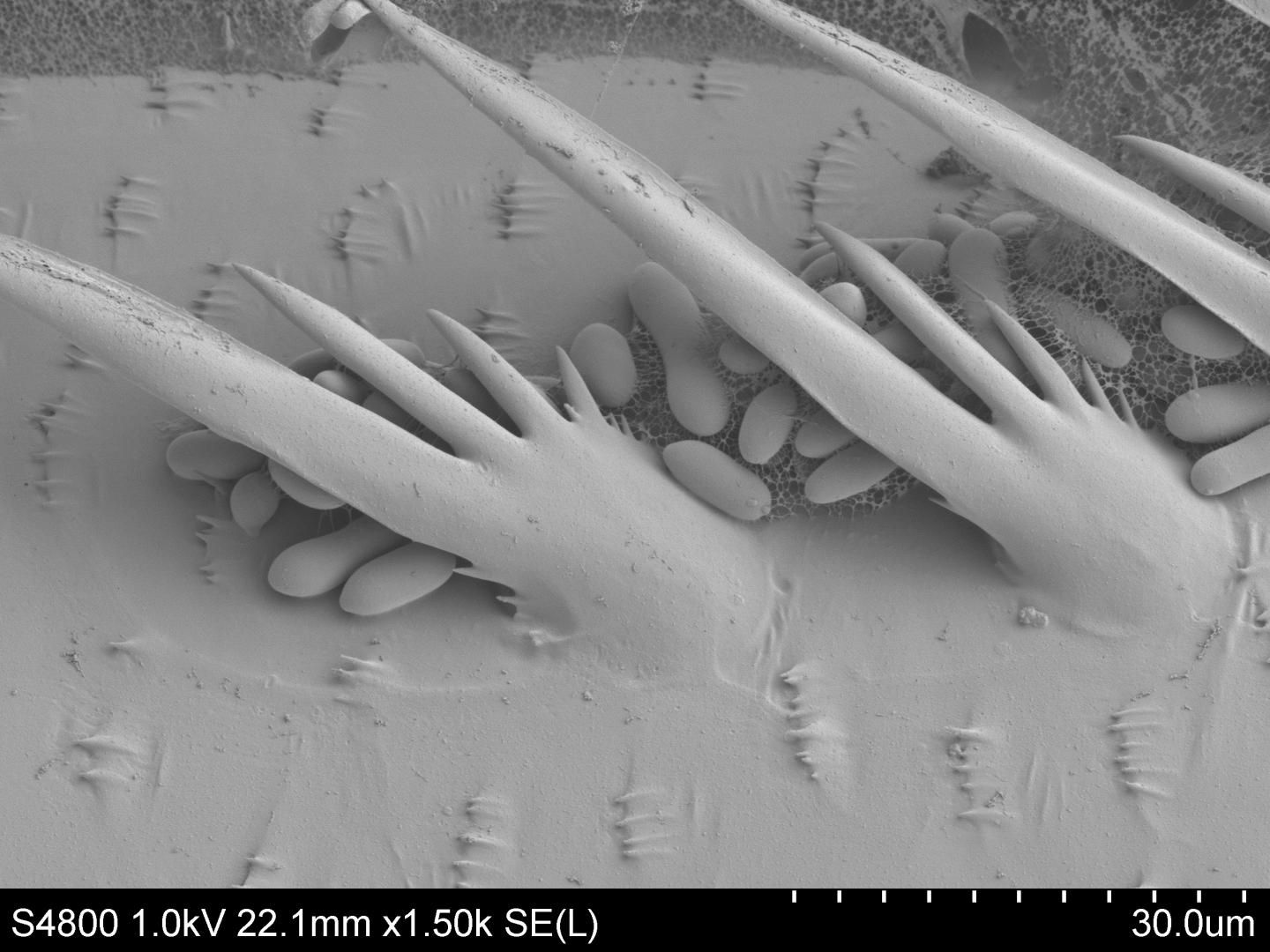
As Zika fears mount and the Aedes aegypti mosquitoes that carry it proliferate this summer, so will applications of chemical pesticides—chemicals that may come with their own health and environmental dangers. What if there were a better way?
According to a study published in the journal PLOS Pathogens this week, that way may lie in Metarhizium brunneum, a type of fungus that develops quite literally a killer structure when it is suspended in water. The fungus develops into blastospores—which attach themselves onto baby mosquitoes, called larvae, and kill the insects relatively swiftly.
Larvae are surrounded by a protective cuticle, but the fungi blastospores produce "copious" amounts of a thick mucus to attach themselves to the cuticle. Then, the researchers write, the blastospores penetrate the cuticle "using a combination of enzymes and mechanical force."
The water-borne blastospores were also able to kill the larvae a second way, quite literally from the inside out: The researchers watched while the larvae "readily ingested" the fungus, and when it would arrive in the larvae's gut it would "penetrate the gut wall," killing the larvae.
"Multiple entry points and gross damage to the cuticle and gut results in rapid larval death," the researchers write, killing the larvae in water within 12 to 24 hours.
Tariq Butt, an author on the study and a biosciences professor at Swansea University in the U.K., and his colleagues conducted the same analysis using the same fungi species spread on land, and found that because they do not form a blastosphere structure outside of water, the fungi are less effective at killing mosquito larvae.
The researchers conclude that using any type of fungi known to kill insects would be much more effective if done in the watery environments where the Aedes aegypti breeds. These blastospores may prove an efficient way of eradicating the mosquitos, which carry yellow fever, dengue, and Chikungunya in addition to Zika.
Uncommon Knowledge
Newsweek is committed to challenging conventional wisdom and finding connections in the search for common ground.
Newsweek is committed to challenging conventional wisdom and finding connections in the search for common ground.
About the writer
Zoë is a senior writer at Newsweek. She covers science, the environment, and human health. She has written for a ... Read more





